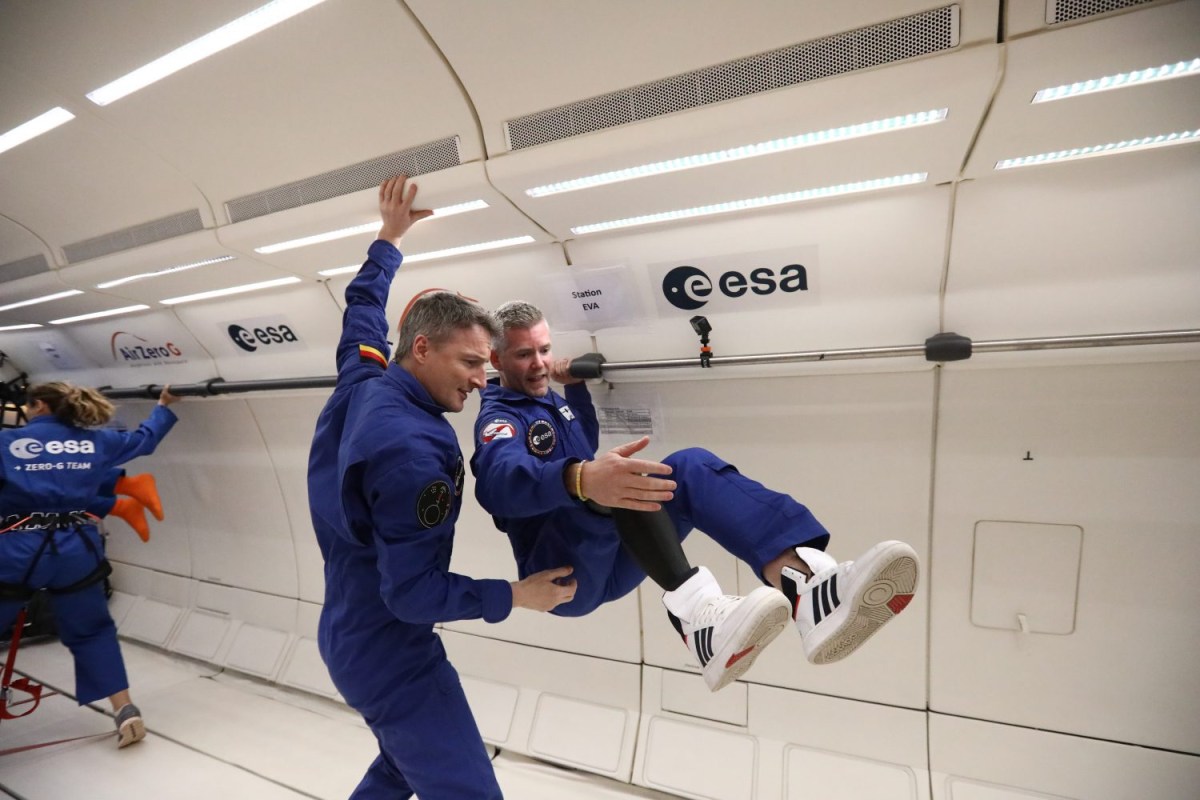WASHINGTON — In a first, a European astronaut with a physical disability has been medically cleared for missions to the International Space Station.The European Space Agency announced Feb. 14 that John McFall, a reserve member of the agency’s astronaut corps, had been certified by a multinational medical board for long-duration missions to the ISS.The certification is noteworthy because McFall lost his right leg in a motorcycle accident at the age of 19 and wears a prosthesis. He is the first person with such a disability to be medically approved to train for missions to the station.“John is today certified as an astronaut who can fly on a long-duration mission on the International Space Station, and I think this is an incredible step ahead in our ambition to broaden the access to society to space,” Daniel Neuenschwander, ESA’s director of human and robotic exploration, said at a briefing to announce the certification.ESA selected McFall as part of an astronaut class announced in 2022. That selection process included an effort by ESA to pick what it called at the time a “parastronaut” to see if people with some physical disabilities could safely fly to space.Since his selection, McFall has participated in a feasibility study called “Fly!” that looked for any issues that might prevent him from going to the station, including both his health and overall safety of ISS operations.“Let’s not underestimate all elements linked to safety procedures when you operate on the International Space Station,” said Neuenschwander. “In all honesty, I was personally expecting some eventual showstoppers there, and I’m really happy to see that we went through that and it’s behind us.”“I feel hugely proud,” McFall said. “The reception has been very warm and positive from the international partners there because of the detailed, methodical, exhaustive work we’ve done here with the feasibility study.”That feasibility study examined more than 80 topics in areas such as training, ISS and spacecraft operations, medical issues and crew support, said Jerome Reineix, Fly! study manager at ESA. He expected a variety of technical difficulties, but those could be resolved.“The main difficulty that we faced was not really technical but about the mindsets,” he said. “People have preconceptions of what a person with a physical disability can achieve, and you have to go again, explain again and demonstrate.”While McFall is now medically cleared for an ISS mission, ESA has not yet assigned him to a flight. “Now he is an astronaut like everybody else who wants to fly to the space station, waiting for a mission assignment,” said Neuenschwander. “Today we cannot give any date.”McFall is one of 12 reserve astronauts selected in that 2022 class, who are part-time members of ESA’s astronaut corps and eligible for specific flight opportunities. One of those reserve astronauts, Marcus Wandt, flew to the ISS on Axiom Space’s Ax-3 private astronaut mission last year through an agreement between the Swedish space agency and Axiom. A second, Sławosz Uznański-Wiśniewski of Poland, is slated to go to the ISS in the spring on the Ax-4 private astronaut mission.Neuenschwander suggested long-duration ISS missions would be flown by ESA’s full-time career astronauts, five of whom were selected in 2022. “Our objective is to fly all of them on a long-duration mission before the end of the International Space Station,” he said. The ISS is currently slated for retirement around 2030.McFall has previously been linked to a potential private astronaut mission under study by the U.K. Space Agency under a memorandum of understanding with Axiom signed in October 2023. That study is examining an “all-U.K.” spaceflight that could be commanded by former ESA astronaut Tim Peake, who joined Axiom as a strategic adviser in July 2024.McFall said at the briefing that discussions between Axiom and the U.K. Space Agency are continuing. “It’s a very interesting prospect,” he said, saying that the agency has been “very proactive in trying to be as prepared as possible should this translate into something.”“It is fantastic to see that John and the team at ESA have proved it is technically possible for someone with a physical disability like his to live and work on the International Space Station,” said Liz Johns, interim head of space exploration at the U.K. Space Agency, in a statement, adding that the agency would support him in the next phases of the effort.Neuenschwander said that such a private astronaut mission would be a decision for the U.K. Space Agency. “Whatever the mission architecture and financing scheme is, today we have the clearance to fly John, and this is the most important point.”
ESA astronaut with physical disability medically cleared for ISS missions

By Tyler Mitchell
Tyler is a renowned journalist with years of experience covering a wide range of topics including politics, entertainment, and technology. His insightful analysis and compelling storytelling have made him a trusted source for breaking news and expert commentary.